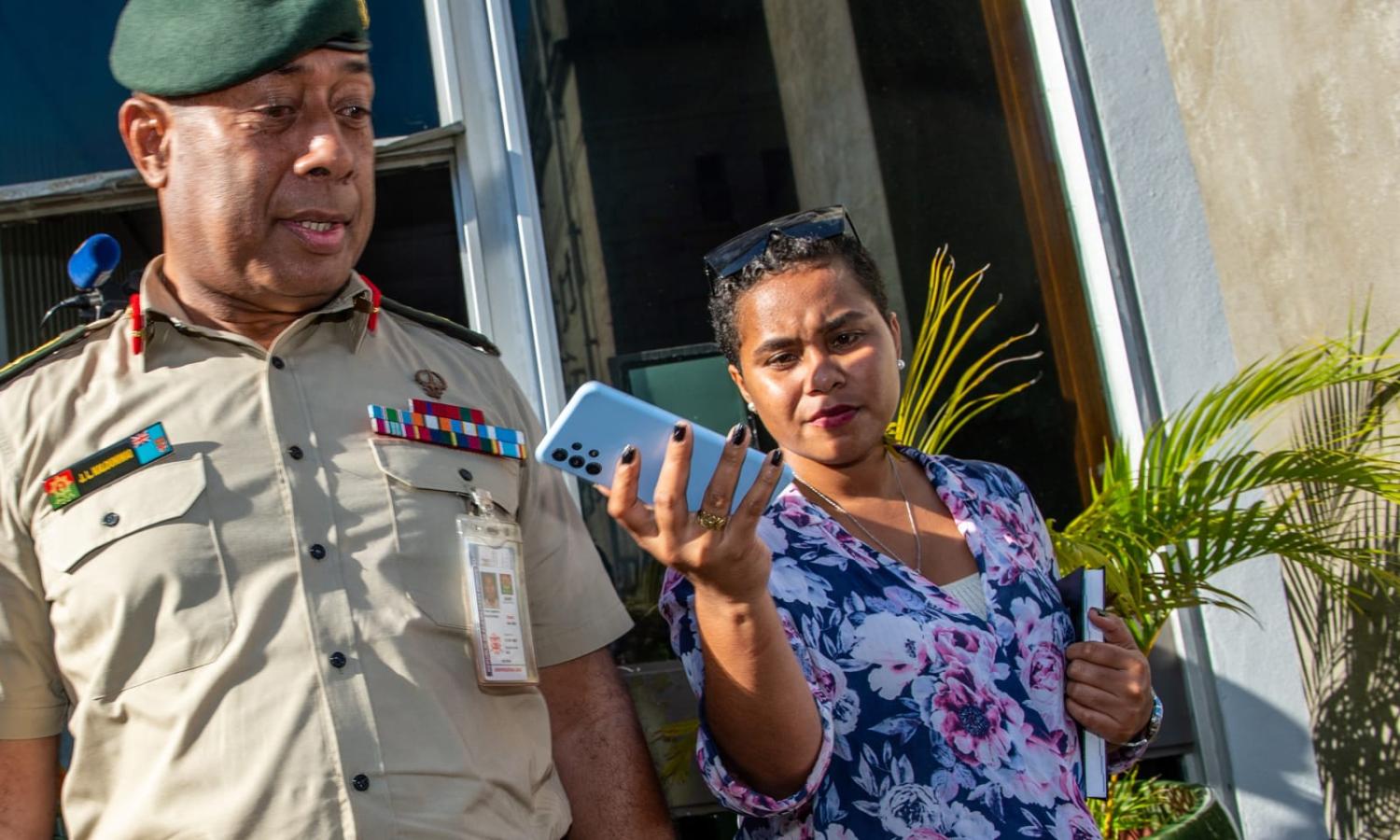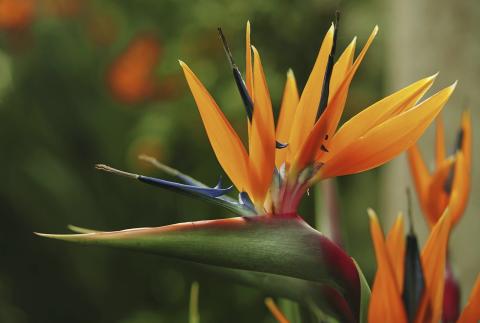Rosi Tamani-Doviverata is co-founder of Women in Media Fiji, President of the Fijian Media Association, and Acting Publisher/CEO at the Fiji Sun. Kathy McLeish is inaugural co-chair and now board director of Women in Media Australia, and Supervising Producer of ABC TV’s Back Roads program.
In the last year, they’ve worked together on various projects including the creation of the Women in Media Fiji mentoring program, supported by Women in Media Australia, the Pacific Media Assistance Scheme, and ABC International Development.
Here they reflect on the experience of supporting women in telling the region’s stories.
Rosi Tamani-Doviverata: There is increased international interest in what is now a geopolitically contested environment in the Pacific region, and that’s led to increased interest in ensuring a free and independent media landscape.
While we hear concern about whether Pacific media is being influenced, we in the Pacific see it differently. We are the influencers. We are leading our own coverage, well aware of the decisions that we have to make in our newsrooms. As Pacific islanders, we are navigators – navigating our way through the calm and sometimes turbulent times.
For us, the challenges for a strong and independent media are closer to home.
Retention of staff is a key issue for all our newsrooms, and identifying and tackling some of those challenges is a significant aim for Women in Media Fiji (WiM Fiji).
The business and economic cases for gender equality are well recognised. And in Fiji, like most of the other newsrooms in the Pacific, at least 50 per cent of people in newsrooms are women, whether they are reporters, editors or photographers. By retaining them, we are keeping that institutional knowledge within our different newsrooms. We also need to have more women in senior leadership roles and that’s only going to happen if we can keep them in the industry.
A combination of factors causes people to leave. Many women are the sole breadwinners in their family, so if they’re offered higher wages in a communications role, they’ll jump at it. For others, a full-time job can be tough when you’re managing a family as well.
Cyberbullying is a big issue for women journalists. It affects them and their families, so, as a result, they choose to work in something else.
Or women are sidelined into softer streams of news reporting. We hear regularly that when women come up with a strong news tip, it’s passed on to a male colleague to cover.
Fiji Sun Acting CEO Rosi Doviverata, PACMAS Fiji Rep Rita Narayan, and PINA Editor Makereta Komai, with about 100 years' experience combined share their 'early journo days' of 'shitty pays' and 'butchered newspieces' with members on day 1 of our strat planning at Uprising Resort pic.twitter.com/QHW5vsk7Vh
— Women In Media Fiji (@WiMFiji) October 13, 2023
We see benefits in bringing media women together, in strengthening the capacity of women journalists, building confidence, and reminding them that their voices matter. We workshop solutions on how to justify why they should cover the story.
WiM Fiji is providing a safe space for media women to have these conversations. We worked with WiM Australia on providing a mentoring program, supported by the Pacific Media Assistance Scheme and ABC International Development and we’ve made great inroads there, too. Mentees have been working through setting their own goals and being intentional about their careers. It was also the first time for many that they were able to have in-depth conversations with someone about their careers, and job challenges.
We are also working with femLINKpacific on how we can better cover issues that are important to women. From their perspective, media houses are not doing enough to amplify issues affecting women in the workplace, communities and villages. With WiM, we want to change that, and we’re talking about how we can better tell the stories from all perspectives, including women. Now, we’re also able to share what we’ve learned with other emerging WiM groups in the Pacific, and in November we’ll run the first WiM Fiji Conference in the Pacific. It’s an exciting time and we can see the work growing.
We’re keen to take a stronger role in telling our stories to the world. We want to encourage more international media to engage in co-productions with us, and to speak to us, rather than coming and telling our stories for us. We live here. This is the air that we breathe every day and the issues that we face every day. When we are telling those stories, that comes with significant understanding of the context and the background of the issues, and that makes the reporting more powerful.
Even the face of a Pacific islander on a screen overseas and a byline, I believe, tells a much stronger story than having someone fly in and out.
For both Rosi and Kathy and for their respective WiM organisations, the self-perpetuating nature of the work is the greatest reward.
Kathy McLeish: I think the great joy for us and for all the other women we’re working with is seeing the growth of the work we’re doing through the support and encouragement that’s so naturally shared among women. In creating a safe place for these conversations, we’re also coming up with solutions and that’s incredibly empowering.
We’ve shared what we’ve learned with WiM Fiji and they’re passing that on, it’s a powerful and positive movement that can only strengthen our industry. These solutions benefit families, too. Equal access to employment also applies to men who want to balance work and family responsibilities. We’re very excited about the future.
We know this work has incredible potential, and this year I’ll embark on a Churchill Fellowship aimed at connecting Women in Media groups around the world and sharing information on their various programs that aim to shift the dial on gender equality. It’s work we’re all passionate about and we know that as one of the major social influencers, media has great potential to make change.


